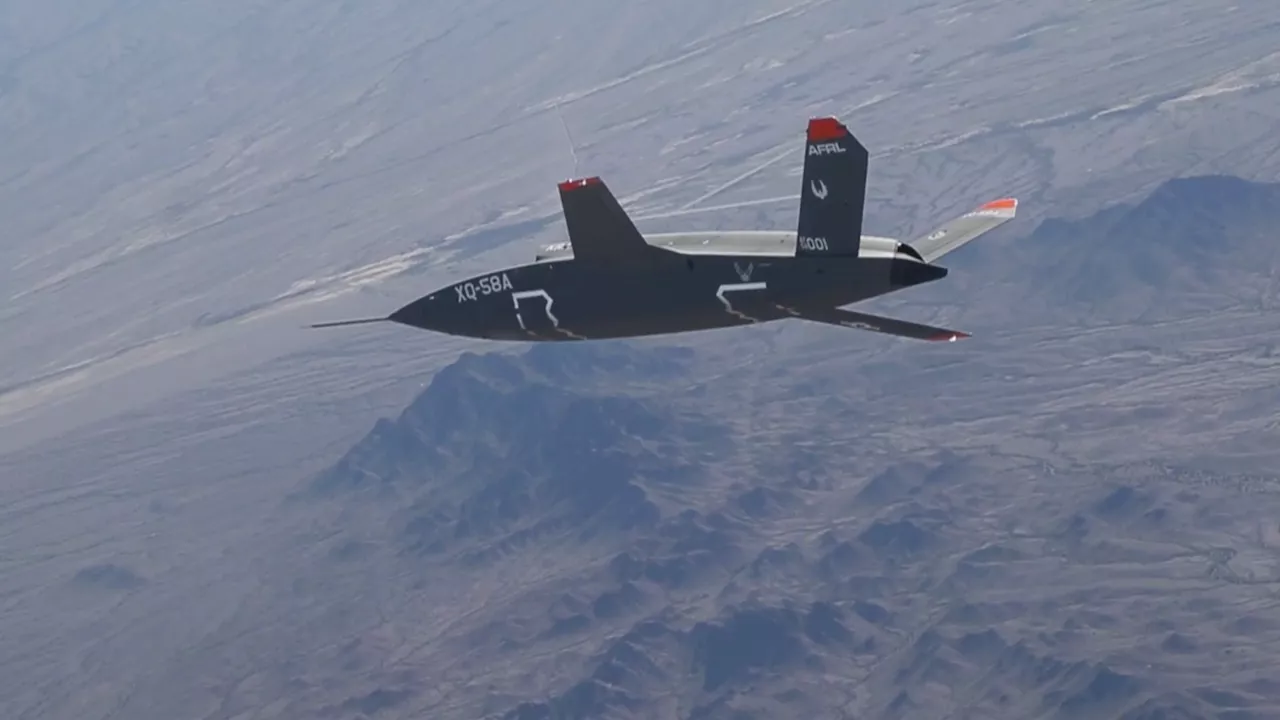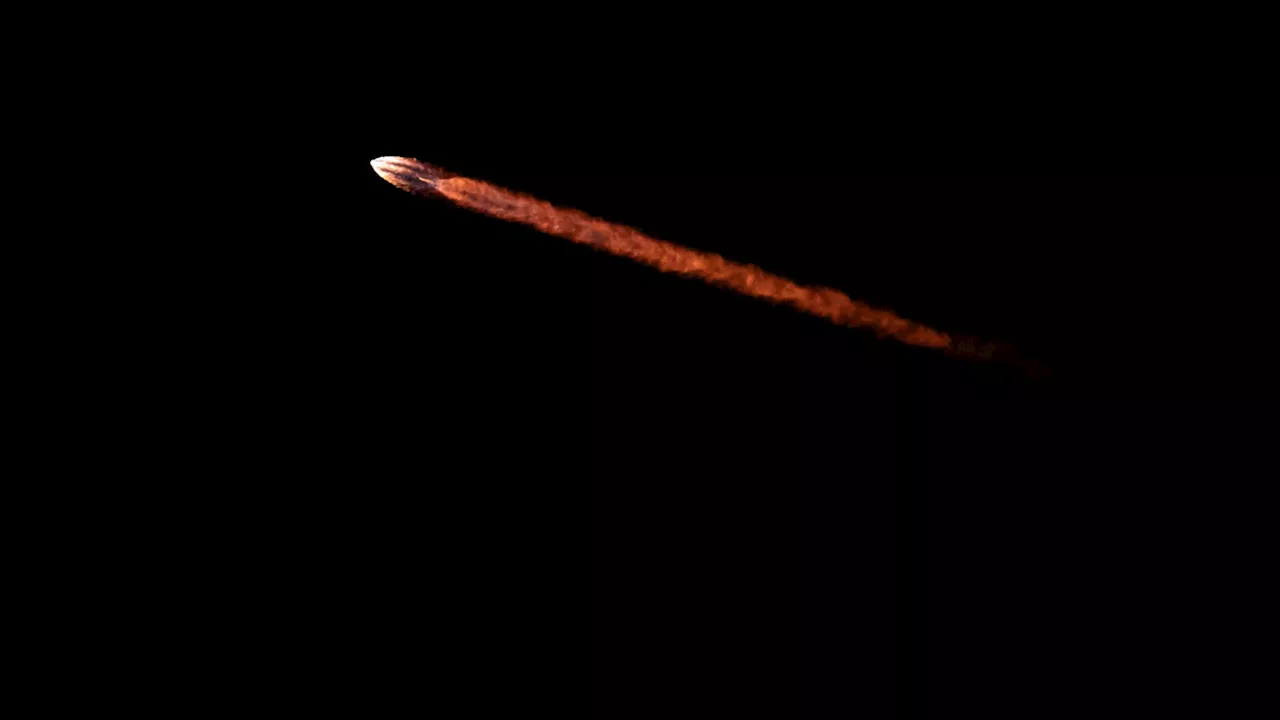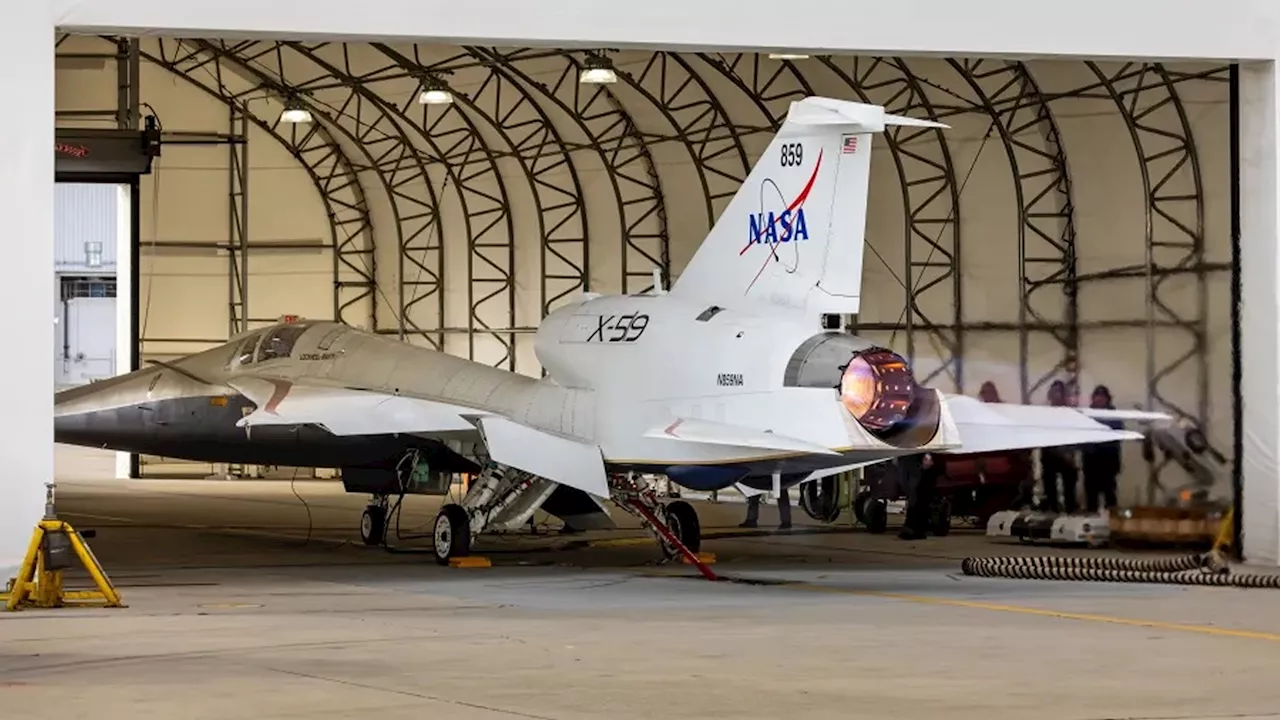NASA successfully completed the first full burn test of its X-59 experimental aircraft, a major step towards achieving quieter supersonic flight. The test, conducted at NASA’s Skunk Works facility, validated the performance of the X-59’s afterburner and its integration with other systems.
NASA has completed the first full burn test for its X-59 quiet supersonic research aircraft. The test, conducted on December 12 at NASA ’s Skunk Works facility in Palmdale, California, is a major milestone for the project as it ramps for full flight testing. The afterburner is an essential component of the X-59 ’s F414-GE-100 engine to enable the aircraft to achieve supersonic flight speeds. According to NASA , the test successfully operated within expected temperature limits.
Airflow over the aircraft’s frame was also well within the expected parameters. The test also validated the team’s expectations for the afterburner operating in sync with the X-59’s other subsystems. This test follows a low-speed engine run-up in October of this year, also conducted at Skunk Works, to check for leaks and other potential issues. The X-59 project has progressed at a rapid pace since NASA officially announced it to the public in 2023. The F414-GE-100 engine delivers around 22,000 pounds of thrust, providing enough power to push the X-59 to Mach 1.4 at approximately 55,000 feet. The engine is also located in a nacelle atop the aircraft (similar to the third engine of the McDonnell Douglas DC-8), which helps reduce the noise generated by the aircraft when going supersonic. Tests, like the recent afterburner fire-up, help the design team find faults or other issues with this experimental aircraft. This, in turn, will help resurrect this form of transport from the dead since the retirement of the famous Concorde. To this end, the Quesst mission collaborates with other commercial partners to help reduce long-distance flight times across the United States and the globe. The X-59 has been designed in such a way as to produce more of a “sonic thump” when breaking the sound barrier, rather than the traditional “sonic boom”, to minimize disturbance to people on the ground
NASA X-59 Supersonic Flight Sonic Boom Quiet Technology
United States Latest News, United States Headlines
Similar News:You can also read news stories similar to this one that we have collected from other news sources.
 NASA's Perseverance Rover Completes Its Epic Climb to Crater RimThe Best in Science News and Amazing Breakthroughs
NASA's Perseverance Rover Completes Its Epic Climb to Crater RimThe Best in Science News and Amazing Breakthroughs
Read more »
 US Navy’s next-gen jammer to disrupt air defenses completes first historic deploymentUS Navy's VAQ-133 'Wizards' return after historic deployment, becoming the first to field the ALQ-249 Next-Gen Jammer.
US Navy’s next-gen jammer to disrupt air defenses completes first historic deploymentUS Navy's VAQ-133 'Wizards' return after historic deployment, becoming the first to field the ALQ-249 Next-Gen Jammer.
Read more »
 Kratos Thanatos Stealth Drone Completes First FlightKratos Defense and Security Solutions successfully flew its Thanatos stealth drone prototype, designed for autonomous missions and high-risk scenarios.
Kratos Thanatos Stealth Drone Completes First FlightKratos Defense and Security Solutions successfully flew its Thanatos stealth drone prototype, designed for autonomous missions and high-risk scenarios.
Read more »
 De Tomaso Completes First P72 Prototype, Final Testing UnderwayThe first prototype of De Tomaso's highly-anticipated P72 supercar has been completed, marking a significant step towards customer deliveries. The prototype will undergo final dynamic validation before production begins.
De Tomaso Completes First P72 Prototype, Final Testing UnderwayThe first prototype of De Tomaso's highly-anticipated P72 supercar has been completed, marking a significant step towards customer deliveries. The prototype will undergo final dynamic validation before production begins.
Read more »
 SpaceX completes Starlink’s first direct-to-cell phone constellation: Elon MuskSpaceX launched 20 Starlink satellites, 13 of which are equipped with direct-to-cell technology.
SpaceX completes Starlink’s first direct-to-cell phone constellation: Elon MuskSpaceX launched 20 Starlink satellites, 13 of which are equipped with direct-to-cell technology.
Read more »
 Ethereum (ETH) Completes First 2024 Golden Cross: DetailsLast time Ethereum saw golden cross was in November 2023
Ethereum (ETH) Completes First 2024 Golden Cross: DetailsLast time Ethereum saw golden cross was in November 2023
Read more »
